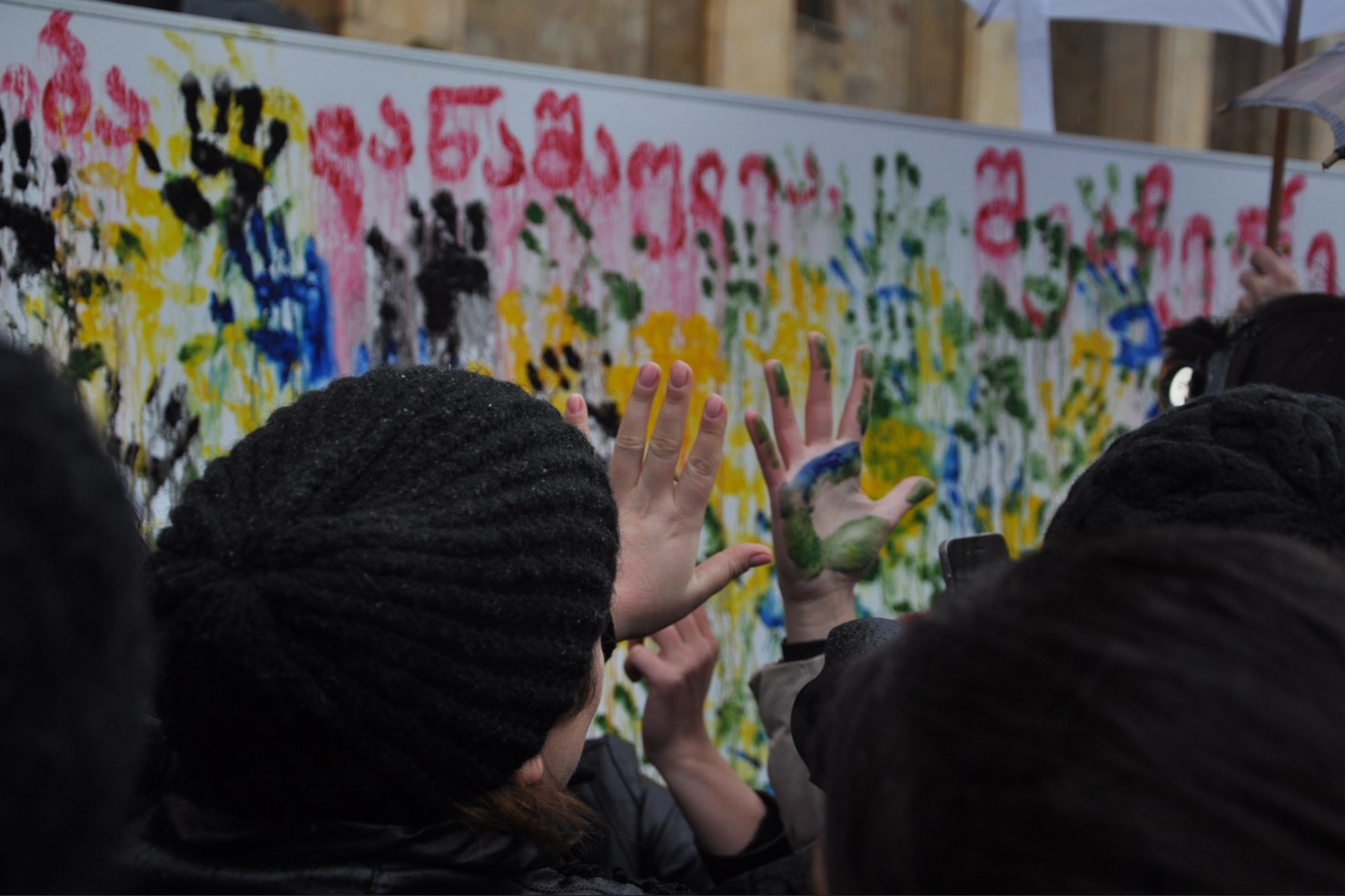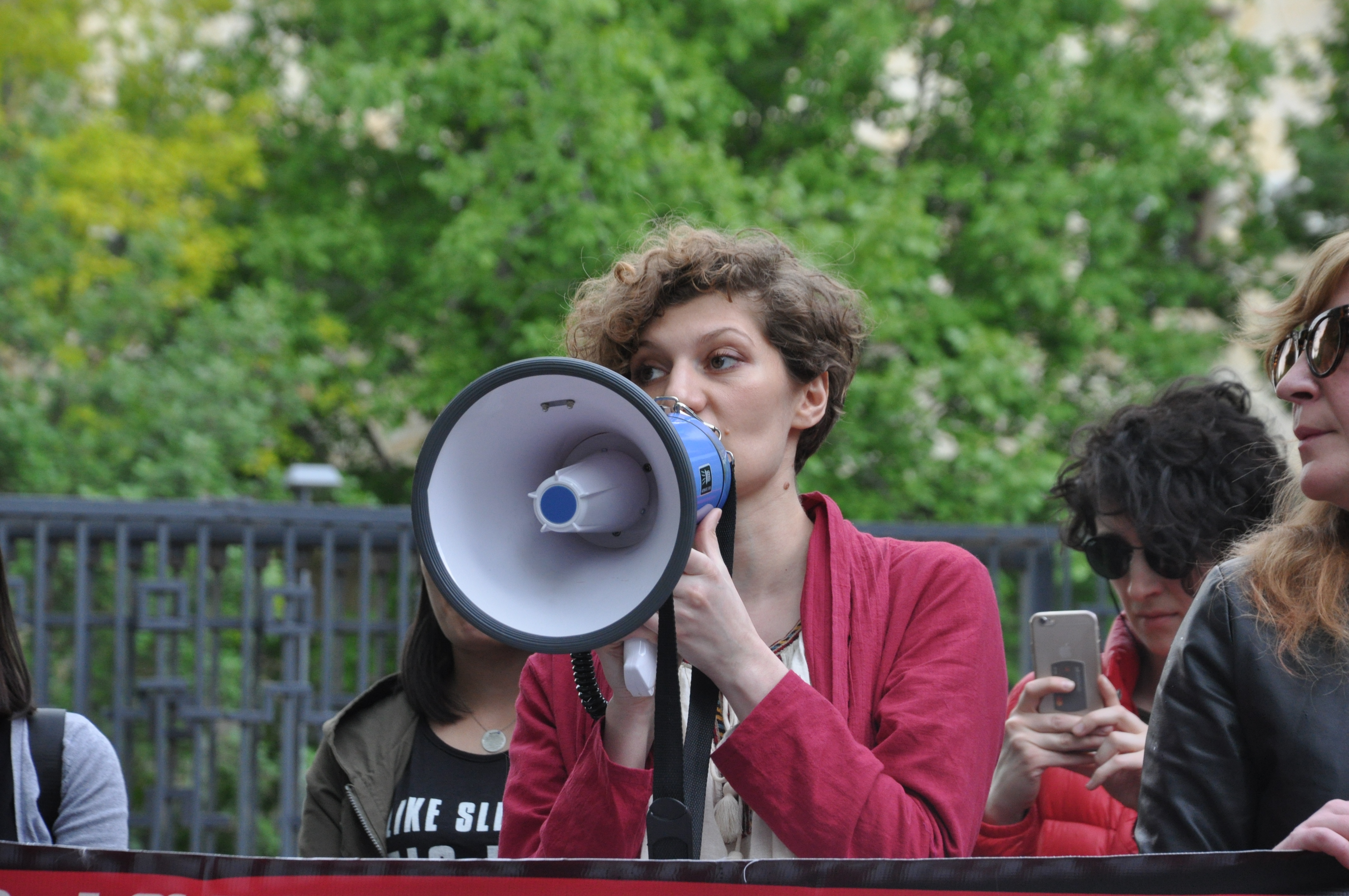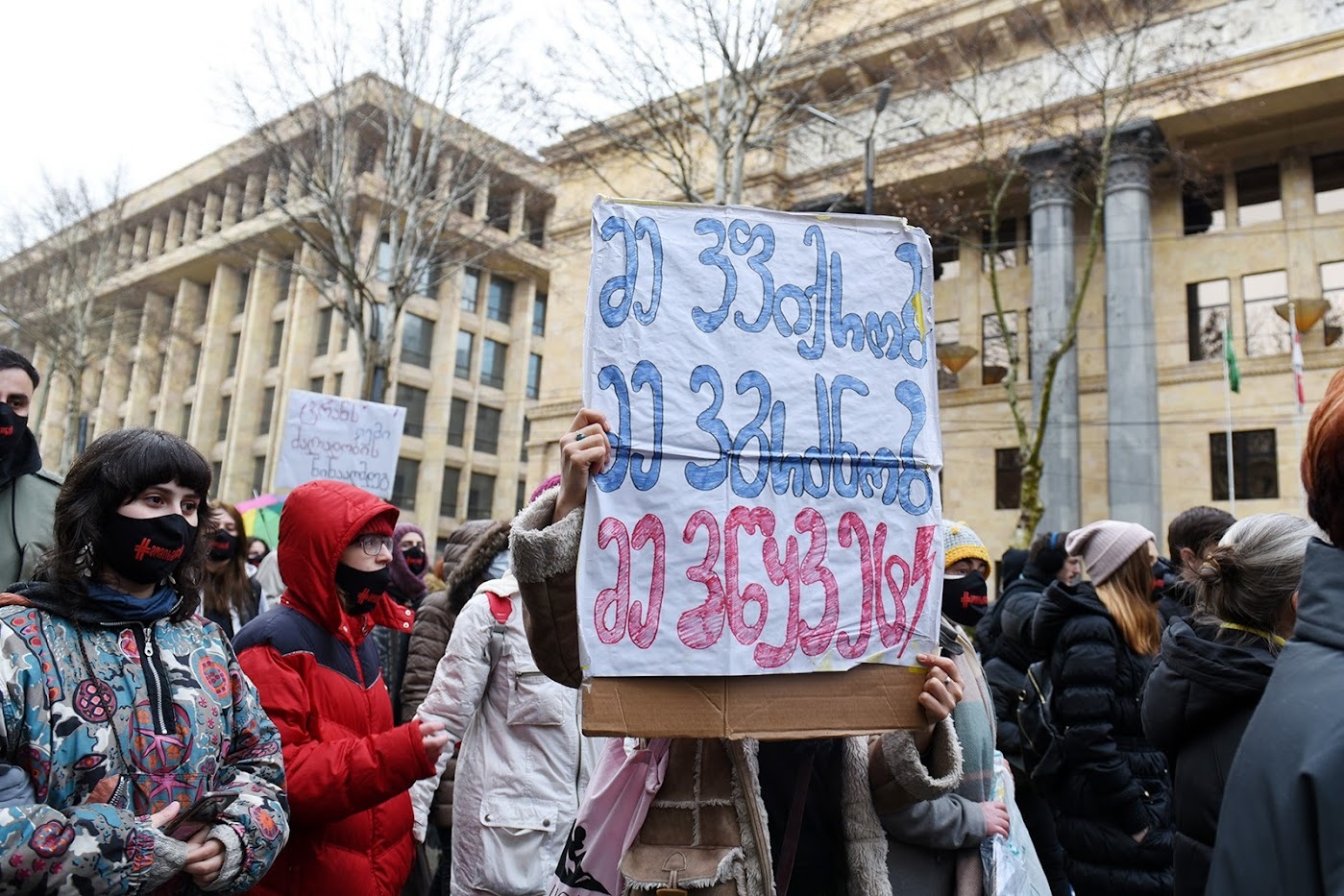
‘He sold his soul’ — the North Caucasians going to war to make a living
Poverty and low wages make enlistment in Russia’s war in Ukraine a tempting offer for many in the North Caucasus.

While the definition of rape is commonly understood as having sex with someone against their will, Georgian legislation disagrees, making no reference to consent. In Georgia, saying no is simply not enough, and experts say victims of rape must prove that they physically resisted their attacker.
‘She woke up because she felt a terrible pain, which brought her to her senses. She was begging the man to stop; she did not have the ability or the strength to put up serious resistance. She could not even get up and get out of there.’
This is the story of 19-year-old Elene (not her real name), as told by Baia Pataraia, the head of Georgian women’s rights group Sapari. Pataraia says that Elene was raped in 2020, and is now being represented by Sapari.
On the day of the incident, Elene agreed to meet up with a man around her own age in a cafe in Tbilisi; she had been speaking to him on Instagram, and had even met his friends.
Pataraia says she drank one drink, and not even halfway through her second, she began to feel very dizzy.
‘She felt bad, very quickly, and that feeling did not sound like drunkenness at all’, Pataraia says. ‘We suspect that this man may have used some kind of drug, but it is impossible to trace this after 24 hours’.

Pataraia says the man took a dazed, half-conscious Elene, who could barely move and had difficulty speaking, to a nearby hotel, where he had sex with her against her will.
When she woke up the next day, Elene did not remember much about the previous night, and simply left the hotel. She only began to piece together what had happened over the next few days.
When she realised she had been raped, Elene asked the man about it. ‘[He] did not admit his guilt and did not see any problem with what happened’, Pataraia says.
Elene then approached the police to make a complaint. According to Pataraia, prosecutors were dismissive, telling her there was no crime and that the sex was with the consent of both parties — because Elene had not gone to the police immediately after the incident and had not put up a fight.
‘Although she received certain injuries, there were no physical signs of resistance, and so the prosecutor did not consider this sufficient to take the case to court’, Pataraia says.
According to her, there was ample evidence that the sex was not consensual, obtained through the physical examination of Elene as well as by questioning witnesses who saw them in the cafe, the taxi, and hotel, and CCTV footage.
Pataraia says that part of the reason Elene’s case was not taken seriously was because of Georgia’s narrow legal definition of rape.
‘If the victim did not fight the abuser during the violence, if the abuser did not beat [the victim] and leave them with very serious injuries, and if the victim did not run to the police immediately, it is not considered rape,’ she says.
Georgian legislation defines rape as ‘any form of penetration of a sexual nature of the body of a person with any bodily part or object, committed with violence, under the threat of violence, or by abusing a helpless condition of a person’.
Tamar Gegelia, an affiliate associate professor of law at the Caucasus University, explains that the law’s wording means that victims must prove that they fought back.
‘As we see in practice, each of these items is very narrowly defined, and except in rare cases, the law requires the victim to physically resist their abuser, and violence should be visible on the victim’s body’, Gegelia says.
‘People exposed to stress always react differently’, says Nino Menagarishvili, a practising psychotherapist and psychiatrist. ‘Some run away, some start defending themselves, and some can become completely frozen from fear.’
‘This does not mean these people have agreed to have sex. There are times when victims of violence do not resist out of fear — because they are afraid they might be killed.’
Menagarishvili says that the approach of police also needed to change.
‘In my personal practice, there was a case when a woman applied to the police to file a complaint and they registered it, but she heard very derogatory comments from the male police officers.’
‘A lot of people think that talking about something like this is a shame. Some people believe that they would not find themselves in such a situation, while others think that if they are silent and patient, others should do the same.’
‘When a person can not defend themself, they must be protected by society and the law,’ she says.
Elene’s own family still does not know what happened to her, because she fears becoming the object of criticism.
While she was unable to obtain justice in Georgia, with the help of Sapari, she is now suing the government in the European Court of Human Rights.
In 2014, Georgia signed the Council of Europe’s Convention on Preventing and Combating Violence against Women and Domestic Violence, known as the Istanbul Convention. In 2017, the country ratified the convention.
The Istanbul convention explicitly obliges signatories to criminalise non-consensual sexual acts.
A report submitted to the Council of Europe in 2021 by 12 Georgian and international rights groups confirmed that Georgia was in breach of the convention.
The groups urged the government to redefine rape and other sexual acts in line with international human rights standards (including the convention) based on ‘free, genuine, and voluntary consent’. They also recommended that reference to the use of violence be dropped from the definition of rape, and instead be included as an aggravating factor.

Despite the clear legal obligation by the government to amend the law, almost five years after the convention came into force, they have still not acted.
In March 2021, OC Media reached out to Nino Tsilosani, who chairs the parliament’s Council on Gender Equality, asking when the law would be changed.
She said she hoped amendments bringing Georgia’s rape laws in line with the convention would be introduced to parliament ‘in the next 3–4 weeks’.
More than a year later, no substantive changes have been made.
For several months leading to the publication of this article, OC Media attempted to get answers from the Council on Gender Equality as well as parliament’s Human Rights Committee. Our calls and messages went unanswered.
‘The reason the law has not been changed for so long is that there is no political will by the government to do so’, says law professor Tamar Gegelia.
Gegelia also criticised the lack of long-term training for police officers, prosecutors, and judges, saying they were being given only a few hours of training on the expected changes.
‘Police officers need to be sensitive to this issue, and to the victim’, she said.
But for Baia Pataraia, it is resistance from law enforcement agencies that poses the main obstacle to changing the law.
‘In general, if the police and the Prosecutor’s Office do not support changes to the criminal code, parliament refrains from making such changes.’
She said that instead of making the necessary changes, the government simply continued to make ‘cautious statements about how they still have to study the issue, to think.’